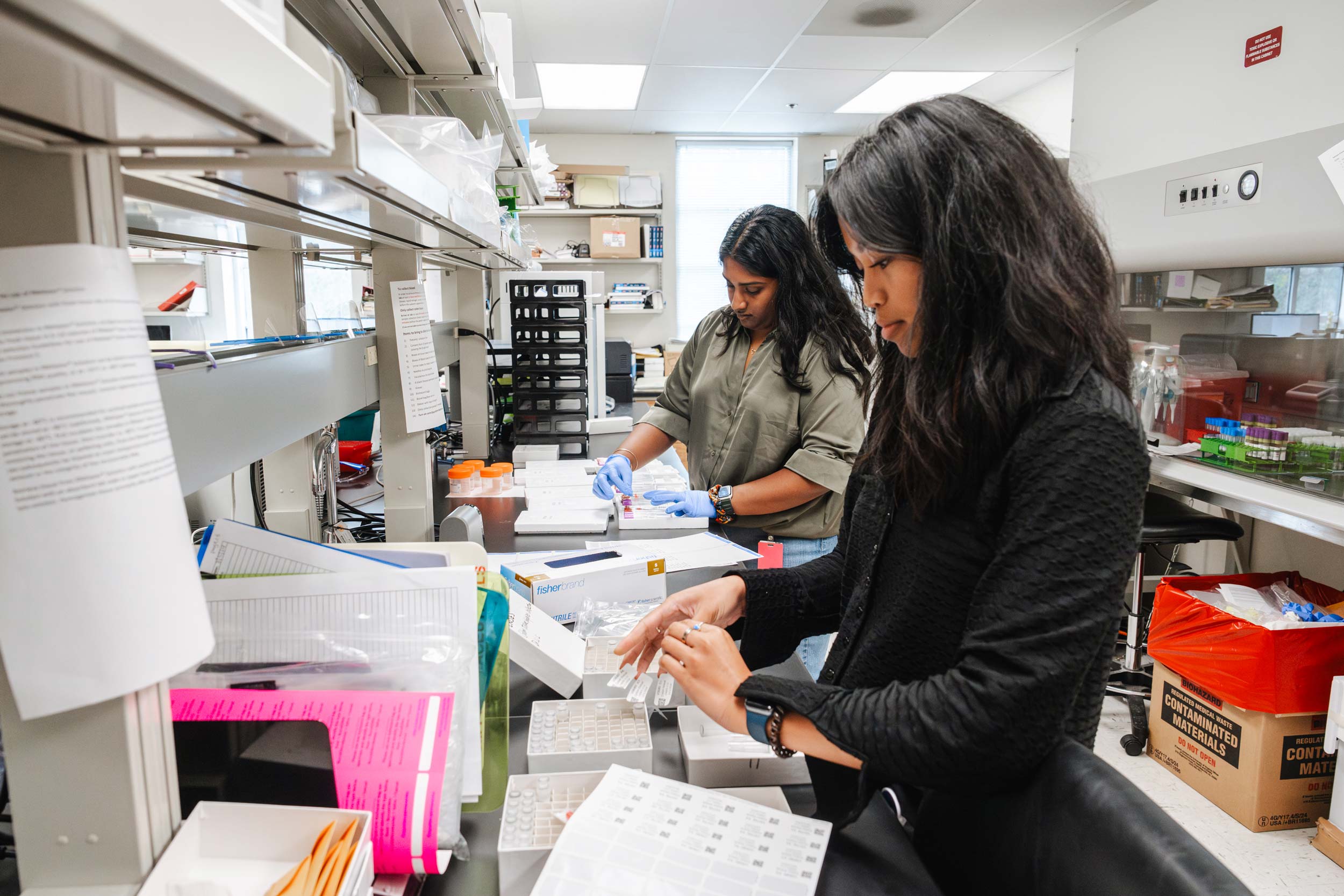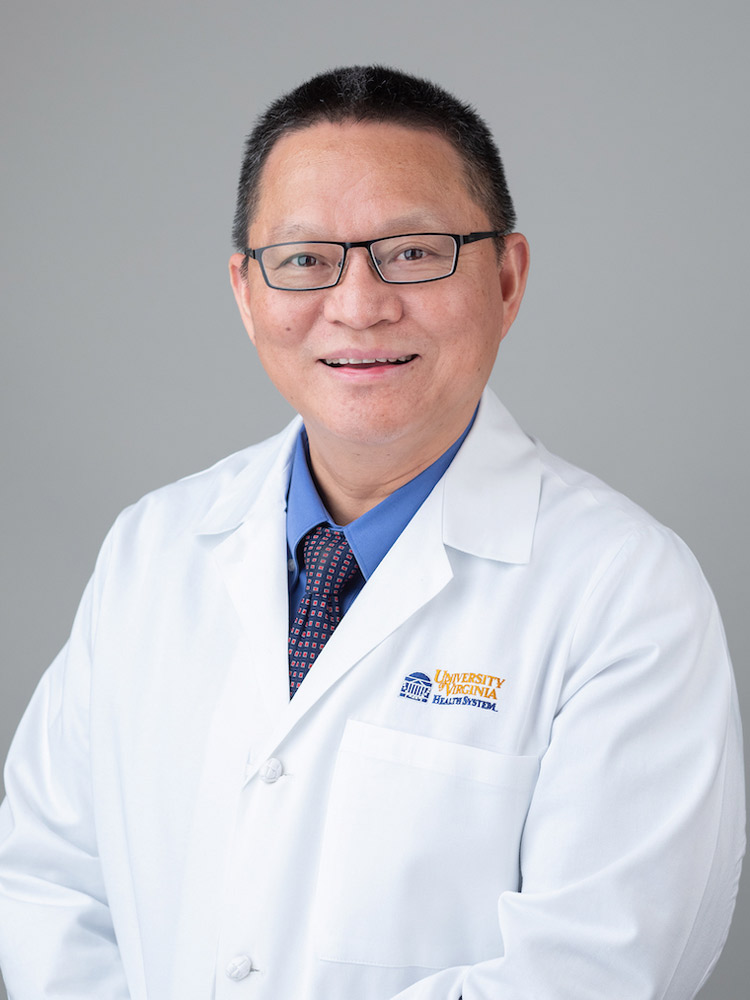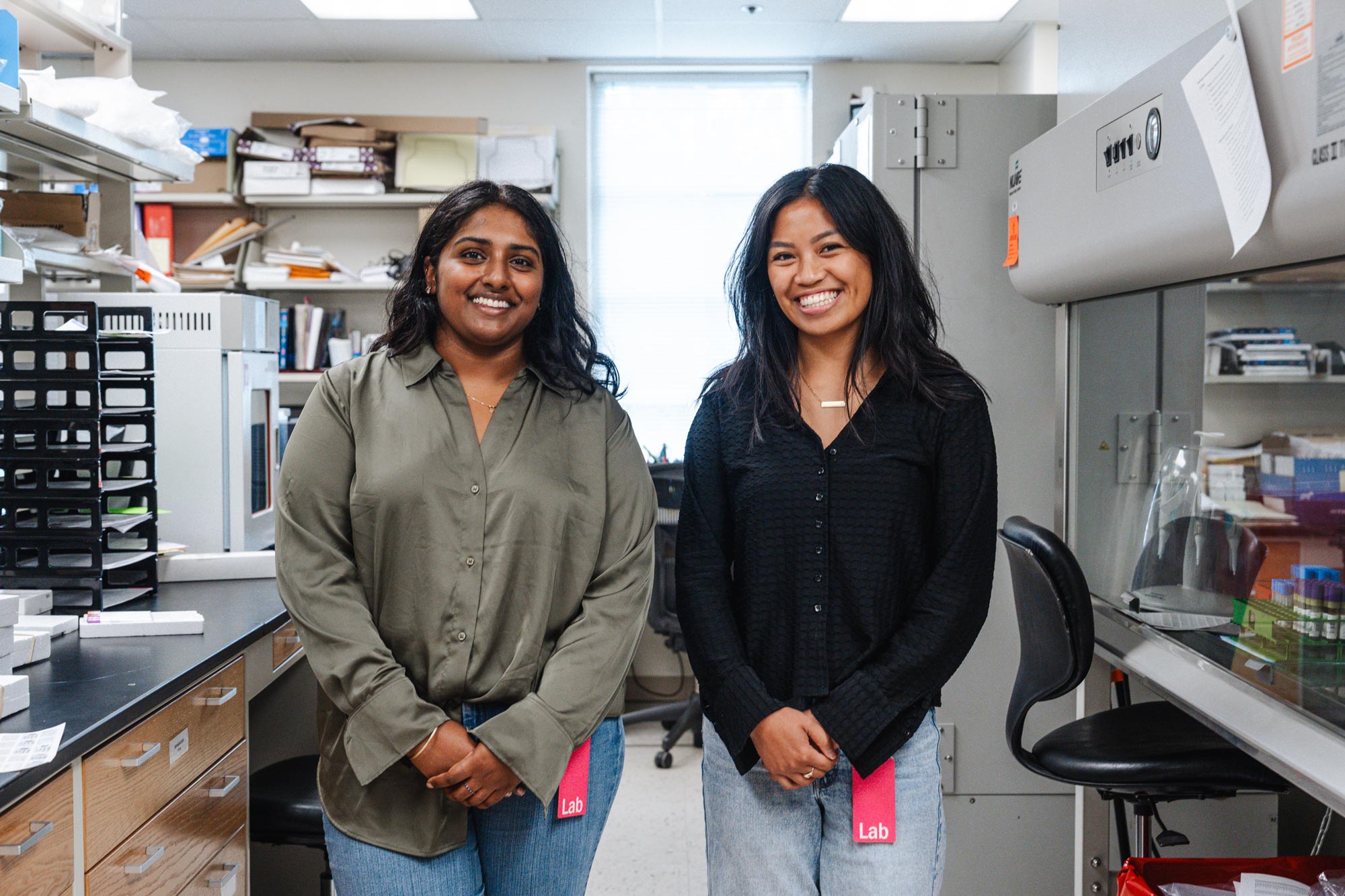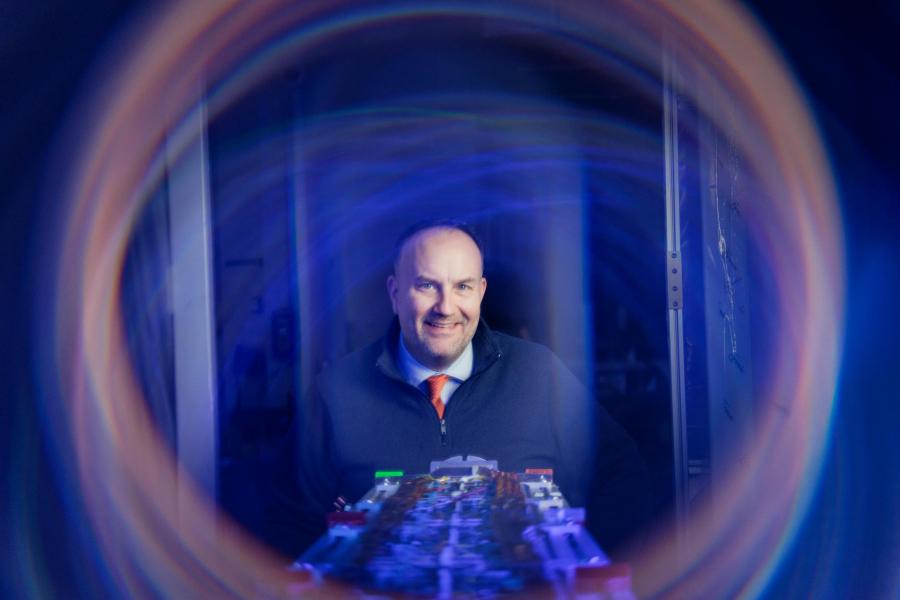Currently, the lab’s research is focused on building a biobank with samples from UVA Health patients to study different aspects of colon cancer – like how colon polyps, small masses of tissue in the colon, form.
“Colon polyps are the first step in developing cancer,” lab specialist Samyukta Venkatesh said. “The aim of colonoscopies are to look for polyps in the colon and rectum.”
Stephen Eaton, the lab’s manager, said researchers have collected samples from more than 600 patients who have been seen at UVA Health and aim to increase that number into the thousands. “We have a very unique opportunity here to get information from a large population and we want to take full advantage of that,” he said.
This work demands many hours in the lab, often six or seven hours each day hunched over samples and working in solitude. As much as Eaton wishes research would move quickly, he knows “in order to get these studies to be as effective and efficient as they can be, there’s a lot of time and effort that has to go in it.”
Over the past year, the research team has been working to publish findings linking high-fructose corn syrup in the diet to higher rates of colorectal cancer. Researchers are building on this information by collaborating with a lab in the School of Medicine’s Department of Public Health Sciences to research how sugary beverages impact health, with a focus on people living in rural Appalachia.
In the future, researchers will also look into waist-to-hip ratios as an indicator for cancer risk. In the past, Venkatesh said weight and obesity were seen as indicators; a growing understanding suggests the situation may be more complex and require more refined measures.
To build the biobank, lab specialists Alexa Ramirez and Venkatesh seek to enroll patients who come to the UVA Endoscopy Clinic into the study. They gather information through questionnaires about the patients’ medical history and lifestyle.
Patients can also donate samples of stool, hair, toenails, blood and more to the lab. While it’s not required, Venkatesh said the majority of patients donate most, if not all, of the suggested samples.
Different types of samples work to offer different information about a patient. A cheek swab, for example, gives insight into a person’s oral microbiome, which is part of the digestive process. Cortisol or stress levels can be measured from analysis of hair samples.
They are also focusing on recruiting underrepresented populations, such as ethnic minorities, people younger than 50, and those older than 70, to build a diverse biobank.
“Most research that has been done historically has been done for, and by, white men,” Venkatesh said. “So, we have to reach into populations that aren’t typically represented in research so we can accurately reflect the diversity of the American population.”
While there is still work to be done, Eaton said he is excited about the progress in the field.
“We learn progressively, but every little bit that we do learn is exciting for us, and I think with the technology we have at our hands now versus 10 years ago, we’ll start to see things happen more rapidly,” he said. “So, I’m really excited about the future – not just for this lab, but for the field overall.”
In addition to finding her work meaningful, Ramirez said she finds inspiration in her coworkers. “It’s fun to work with people who care about their patients and the work they do,” she said.







